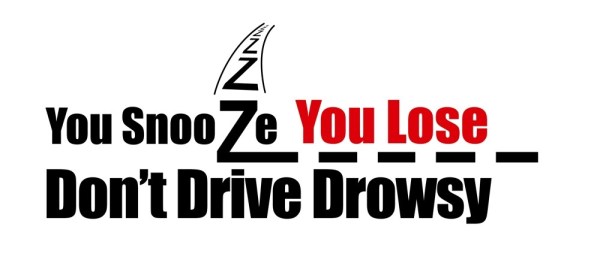 We have become accustomed to living a fast pace life. We are continually trying to keep up with the business of life. For example, we strive to make it to appointments on time, complete specific tasks to meet a deadline or manage parenthood with young and energetic children. As we continue to live up to the expectations of our responsibilities and schedules, we get fatigued. To compound the problem, we often don’t get the proper sleep we need.
We have become accustomed to living a fast pace life. We are continually trying to keep up with the business of life. For example, we strive to make it to appointments on time, complete specific tasks to meet a deadline or manage parenthood with young and energetic children. As we continue to live up to the expectations of our responsibilities and schedules, we get fatigued. To compound the problem, we often don’t get the proper sleep we need.
The National Highway Traffic Safety Administration’s latest study in 2107 concluded that 91,000 police-reported crashes involved drowsy drivers. Out of the 91,000, people were injured in 50,000 of those crashes, and 800 resulted with fatalities. They also reported accidents that involve drowsiness occurring more frequently between midnight and 6 am as well as in the afternoon. Why is that? Because the circadian rhythm is known as your internal clock that is a part of the hypothalamus. The internal clock cycles between sleepiness and alertness at regular intervals. Adults commonly experience these cycles during these times because between midnight and 6 a.m., a time period when we people normally sleep. We become drowsy in the afternoon because we want to rest or nap after lunch, so it signals our body to release melatonin; thus, we become sleepy.
It is a false statement to conclude that driving tired or sleepy is safer than driving drunk. For example, an individual might be the designated driver when spending a night out with friends. If he is tired from a long, busy, hectic day without proper sleep the night before, even without drinking alcohol with his friend, he could very well be impaired and an unsafe designated driver. The reason for that is because the result of either driving intoxicated or driving sleepy is the same- impaired cognition and performance.
Depending on one’s age, individuals need between 7-9 hours of sleep. The lack of sleep is not the only factor that causes drowsiness. Other causes of drowsiness can be from medications. If you are experiencing more drowsiness than usual due to the medications, then it would be best to inform your doctor of the symptom to possibly change the medication. Another cause is alcohol consumption. Alcohol is considered a muscle relaxer and a sedative. This is why after a period of drinking, a person will soon feel the sedative effects of the alcohol.
What can you do not to be a drowsy driver?
The clear-cut answer is to get enough sleep. Nevertheless, there are some other tips to prevent becoming a drowsy driver. Some of those tips are as follows:
1. For long road trips, it is best to leave at a time when the driver is most alert or, if possible, have substitute drivers to relieve the tired driver.
2. Roll the windows down and let the wind and air pass freely through your vehicle (this is especially effective on cool or even cold night).
3. Turn the volume up on your radio (listening preferably to fast-paced music).
4. Pullover. If you are on a long trip and alone and you find yourself getting sleepy, it is crucial to find a safe place to pull over (in a safe location) and take a rest until you are ready to resume driving. Even better would be to find a motel for the night and start back on road in the morning refreshed.
5. Advise teenagers to delay driving until they are confident, rested and alert. Many teens lack the necessary hours of sleep either from school, work, or sports, so it is essential for parents and guardians to advise teenagers not to drive when they are tired and worn out. Instruct (or at least advise) them to seek other transportation alternatives.
If you have experienced a car accident involving a drowsy driver, it is crucial to contact a skilled attorney like Eric Reyes to represent you. Eric Reyes has been a practicing attorney in the area of personal injury for 30 years. Throughout his time focusing on personal injury law, he has met the requirements to be a Board Certified Attorney in Personal Injury Trial Law and Civil Law. His knowledge of personal injury can help you determine the best way to resolve your matter. Please give our office a call at (817) 332-1522 for further information.
 Fort Worth Injury Attorney Blog
Fort Worth Injury Attorney Blog

